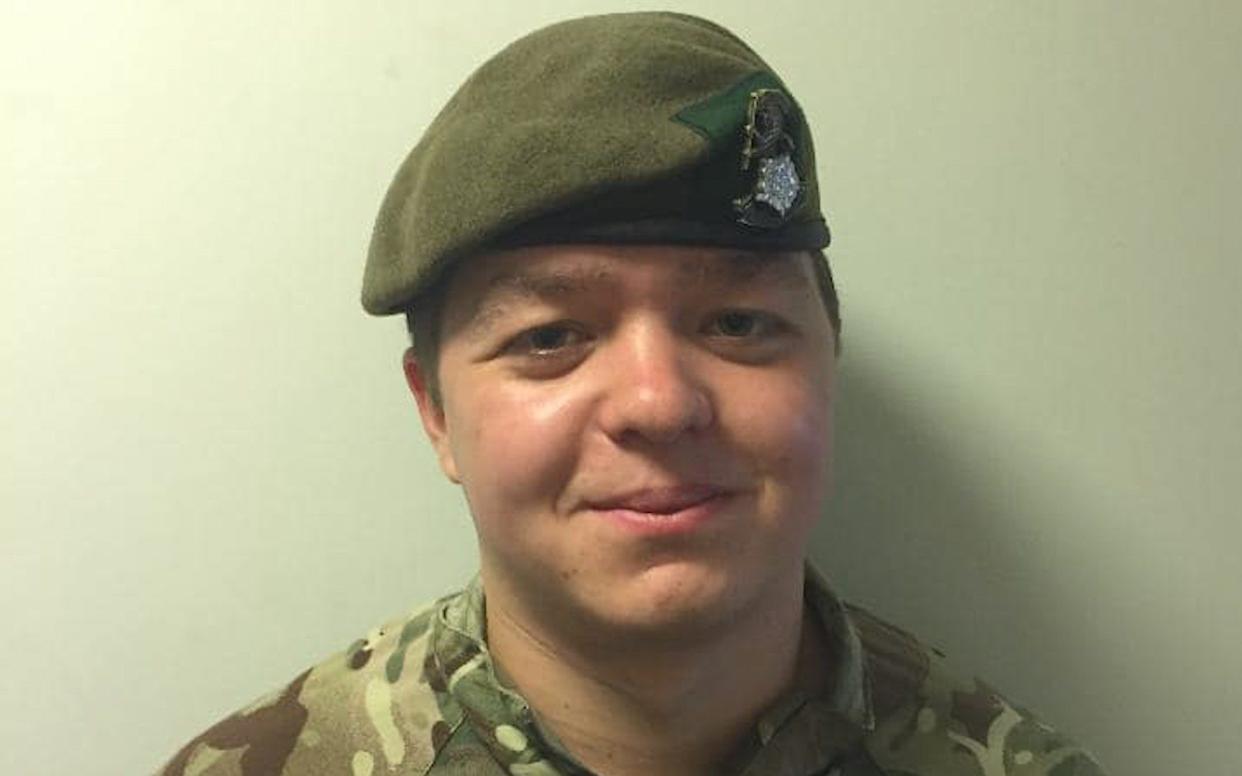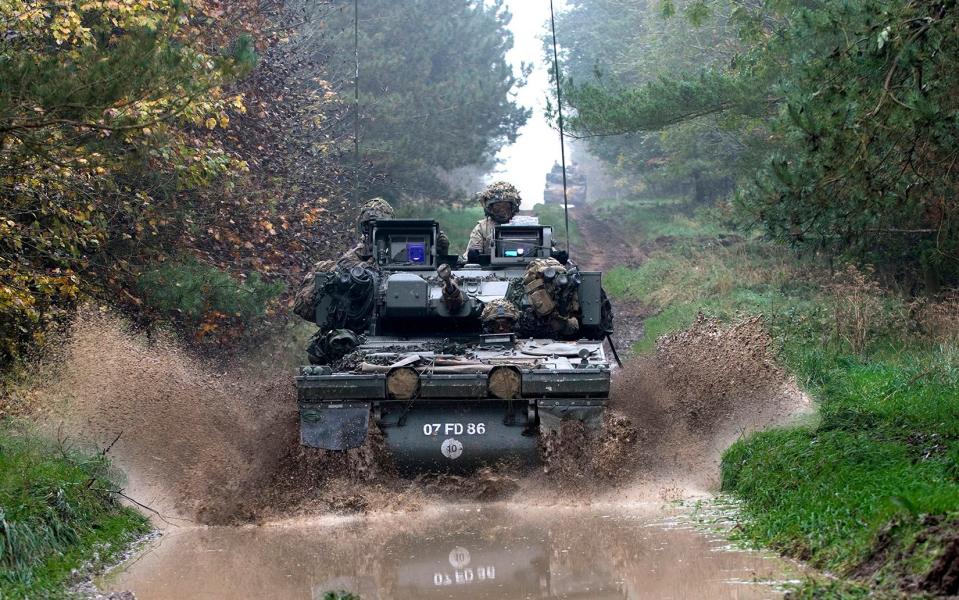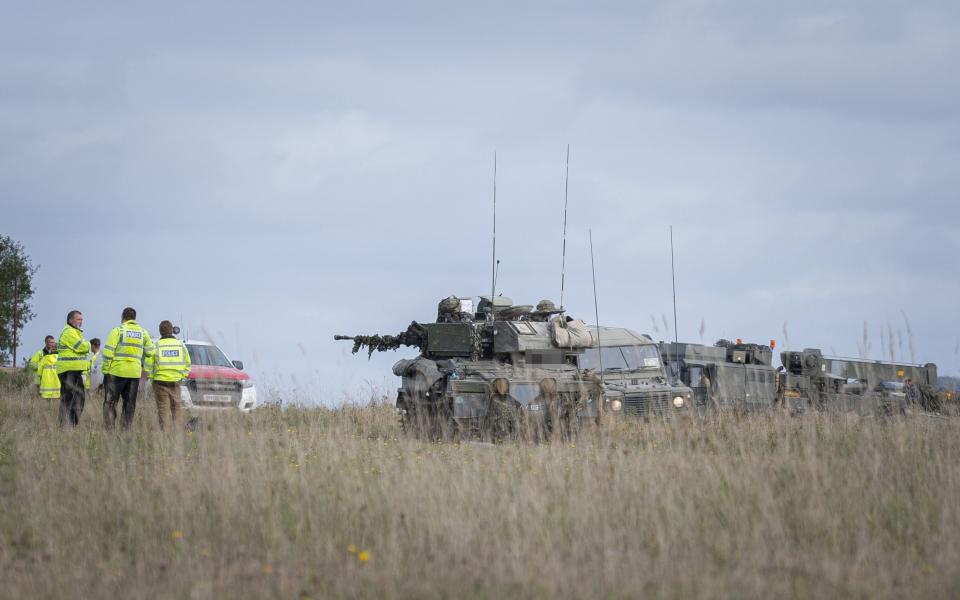Old army vehicle that killed soldier in freak accident should not have been in use

A 40-year-old armoured vehicle in which a soldier died in a freak accident on a training exercise should not have been in use, an official investigation has found.
Private Jethro Watson-Pickering died after the gun turret of the Scimitar armoured vehicle he was driving struck his head after hitting a tree in October 2021.
An inquiry ordered by the Defence Safety Authority found that the soldier, 23, was not qualified to drive the vehicle, which was over 40-years old and was in such a poor state of repair it should never have been in use.
Two other soldiers also travelling in the vehicle, one of whom was the commander, also lacked the necessary training for their roles, the report said.
The investigation also found that neither Pte Watson-Pickering or his two crew members had either driven or been in a moving Scimitar prior to the accident.
The 200-page report, which took over two years to complete, identified 56 different factors that contributed to Pte Watson-Pickering’s death.
Battalion under ‘considerable strain’
It found that soldiers in the battalion were under “considerable strain”, with witnesses suggesting that the unit often operated in a state of confusion.
The inquiry found that the primary cause of death was owing to Pte Watson-Pickering driving in a head up position rather than head down, inside the armoured vehicle and driving using a periscope.
The soldier was killed almost instantly when his head was crushed by two large equipment bins attached to the vehicle’s turret, which rotated quickly after hitting a tree.
The inquiry team also discovered that a commanding officer had signed a formal document stating that his soldiers were “current, competent and qualified” to take part in the exercise when they were not.
The report also uncovered that some of the officers within his battalion were also not properly qualified to take part in the exercise.

Despite those findings, the Ministry of Defence said that Pte Watson-Pickering’s commanding officer was not facing disciplinary action.
The report said 24 “contributory factors”, 32 “other factors” contributed to his death. The report also noted 34 observations and made 52 recommendations to prevent similar accidents reoccurring.
The inquiry team found that those within 1Yorks felt the battalion had “been working at near full capacity since approximately 2019 and the strain on the unit was “significant”.
One witness told the inquiry team that people didn’t know what they were doing from one day to the next.
During the investigation, officers discovered that similar non-fatal accidents had occurred before but were not properly recorded so no lessons could be learned or structures put in place to prevent similar accidents happening again.

Pte Watson-Pickering, who came from Boosbeck in Redcar and Cleveland, was described by friends as “one of the nicest lads you could ever meet”.
He joined the Army Reserves in 2016 before transferring to the regulars in 2019.
He was a member of the 1st Battalion The Royal Yorkshire Regiment (1 Yorks) and taking part in Exercise Iron Storm on Salisbury Plain when the incident happened.
‘Born to be a soldier’
Following his death a former soldier wrote on Facebook: “I completed training with Jethro in the reserves. He was the best bloke, the nicest guy, he just knew everything about the Army.
“He helped me and other lads with our kit. He just knew how to fix everything. He was always there helping everyone. He was born to be a soldier.”
An Army spokesman said: “Our thoughts and sympathies remain with Private Jethro Watson-Pickering’s family and friends at this sad and difficult time.
“The Army has accepted all 52 of the recommendations in this report.
“CVR(T) Scimitar is no longer in service, but where the recommendations are applicable to other armoured platforms, they will be implemented as soon as possible.
“All deaths in service are thoroughly investigated by professional bodies independent of the Army chain of command.
“Any lessons identified are used to make the chances of similar tragedies occurring as low as possible.”

